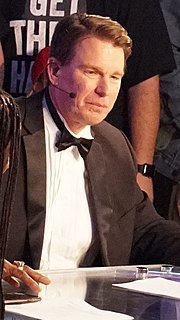A Quote by Edward Hirsch
There's never been a culture without poetry in the history of the world. In every culture, in every language there is expressive play, expressive word play, there's language use to different purposes that we would call poetry.
Related Quotes
Her voice was slightly accented but her French was perfect. Someone who'd not just learned the language but loved it. And it showed with every syllable. Gamache knew it was impossible to split language from culture. That without one the other withered. To love the language was to respect the culture.
Obviously people's feelings are going to get hurt when you use certain words, but you can't outlaw words. They're really the history of our culture. They tell you what's going on. When you make words politically incorrect you're taking all the poetry out of the language. I'm pro anybody living their lives the way they want to live, sexually and otherwise; and I'm anti any kind of language repression.
The spirit of playful competition is, as a social impulse, older than culture itself and pervades all life like a veritable ferment. Ritual grew up in sacred play; poetry was born in play and nourished on play; music and dancing were pure play....We have to conclude, therefore, that civilization is, in its earliest phases, played. It does not come from play...it arises in and as play, and never leaves it.
Poetry transcends the nation-state. Poetry transcends government. It brings the traditional concept of power to its knees. I have always believed poetry to be an eternal conversation in which the ancient poets remain contemporary, a conversation inviting us into other languages and cultures even as poetry transcends language and culture, returning us again and again to primal rhythms and sounds.
Music is a universal language insofar as you don't need to know anything else about a musician that you are playing with other than that they can play music. It doesn't matter what their music is, you can find something that you can play together, with what their culture is. The dialect part of it comes into play, but nothing like the differentiation that language sets up, for example.
In most of the world, poetry has such a different reputation than it does in Western culture. Poetry is a popular genre in Afghanistan. If you turned on the radio, there would be a poetry program that would be as popular as The Real Housewives. People aren't listening to poetry as if they're taking their vitamins. Instead, it's a popular vessel you can fill with anything. You could fill it with sass. You could fill it with rage. You could fill it with political statements.





































